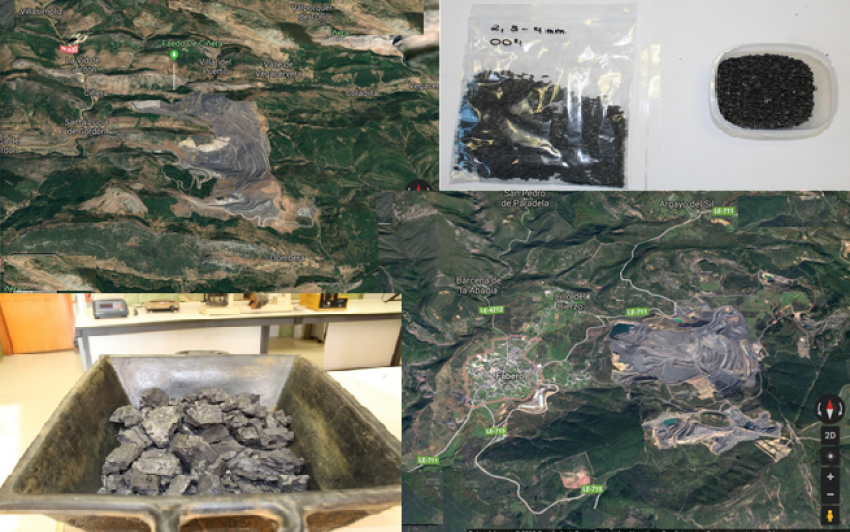Exploring the anthroposphere with COST Action MINEA
Our day by day / 30-09-2019
ICAMCyL contributes to the COST Action MINEA through its research on the recovery of raw materials from mine tailings. The name of this COST Action, which brings together experts from 29 European countries, stands for ‘Mining the European Anthroposphere’ and it is aimed at deepening the knowledge on secondary raw materials, that is, raw materials derived from products already used or from waste generated in extractive activities in the geosphere. This research is intended to provide new and well-structured knowledge on the availability of these secondary raw materials and their recovery and reuse potential.
From this perspective, traditional mining changes its focus from the geosphere to the anthroposphere, that is, to the part of the environment built or modified by the human being, which is becoming a key potential source of valuable and otherwise scarce raw materials.
In order to know the availability of these secondary raw materials, one of MINEA work groups is responsible for the elaboration of a complete database on mineral waste deposits derived from mining and/or metallurgical activities. This database will allow their classification and quantification, as well as the subsequent access to this information that will allow the use of these reserves of raw materials.
Nowadays, we have extensive inventories of geographic deposits with reasonable prospects for an eventual economic extraction (mineral resources) and of resources that are legally, economically, and technically feasible to extract (reserves). These inventories provide information on the future availability of primary raw materials.
However, there is no such information on secondary raw materials. Even though the amount of materials in the anthroposphere has grown exponentially in the last few decades, the potential of this anthropogenic deposits has not been comprehensively explored. This means that at the moment it is not possible to:
- compare resources/reserves of primary and secondary raw materials;
- assess the recovery potential of raw materials derived from mining waste;
- provide complete and centralized information on the availability of this type of raw materials for their future use and commercialisation.
Aiming at overcoming these obstacles and as part of MINEA’s work, ICAMCyL has studied the potential resources of the mine tailings in the province of León (Spain). Our colleague Marta Alonso has recently shared the results of her research (under the title "Attainment of a database for the valuation of mine tailings in mining regions"), where she has gathered valuable information from scattered data extracted from several public sources. The resulting database includes administrative, geographic and geological data of mine tailings. The final purpose is to create a valuable source of information on the mineral resources prevailing in the province of León, as well as to raise awareness about the great potential for the technological valorisation of these materials.